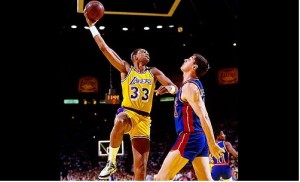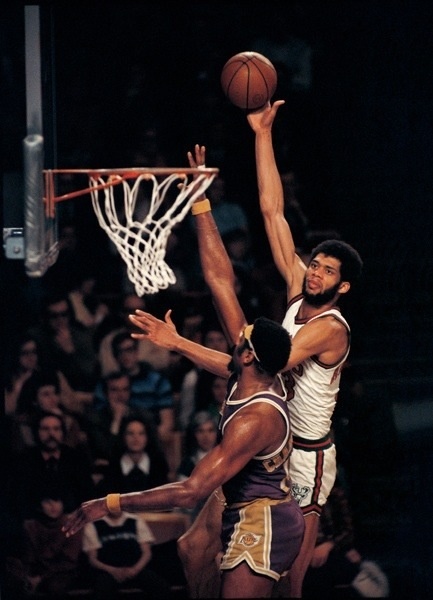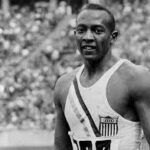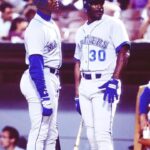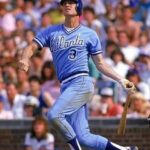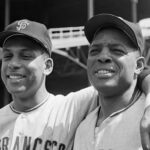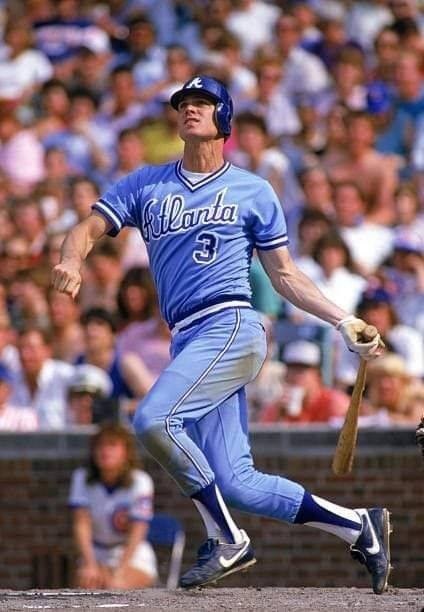Is Kareem Abdul-Jabbar the Greatest Player of All-Time?
If you had to pick out one basketball star that deserves the title of the greatest player of all time – then the name of Kareem Abdul-Jabbar is definitely on the shortlist.
Once in a while, there are players in all kinds of different sports who just seem to re-write the way the game is played – along with the record books – and Kareem Abdul-Jabbar was most certainly such a player.
One might say the same about the great Pele or perhaps Diego Maradona in the world of soccer, for example – or perhaps Jack Nicklaus or maybe even Tiger Woods in golf. And in tennis both Rafael Nadal and Roger Federer have been re-writing the record books over the last decade between them. These are all players and sportsmen who learn their trade in the same way as everyone else trying to make it in their chosen sport – then somehow do something different again. It’s not just about being better – it’s about doing things differently than anyone else ever has done before, and taking things to a whole new level.
Perhaps the most obvious aspect of Kareem Abdul-Jabbar’s game that no-one else had really done was that trademark skyhook shot that punished so many opponents so badly during the player’s 20 year basketball career.
But it was more than that; he played with sublimity – with an elegance and style that few other players have ever been able to match, if any.
Another of his trademarks was to play down low. He looked like he was hunting as he crouched with the ball, looking up from underneath his spectacles that he usually played in – and he was completely single-minded in achieving what he was setting out to do; score points and win games. But he did it all with grace and style and a wonderful fluidity of movement that is the hallmark of so many great players in different sports. It’s rather like watching someone doing exactly what they were born to do – moving with grace and speed like a predatory big cat in a way that is far more about instinct than it is about conscious thought.
By the time Abdul-Jabbar decided to quit basketball in 1989 at the grand old age of 42, no NBA basketball player had ever scored as many points or been awarded as many ‘Most Valuable Player’ awards, or blocked more shots. He had even played in more All-Star Games and notched up more seasons than any other player in NBA history. So when we say that he re-wrote the record books, this is no throwaway sycophancy from an appreciative audience of basketball fans – it is, quite simply, a literal truth.
So purely from a statistical point of view, Kareem Abdul-Jabbar’s list of both individual and team-based achievements means he has a legitimate claim to be called the greatest basketball player in the whole history of this great sport. The list of achievements includes Rookie of the Year, then a member of no less than six NBA championship-winning teams. He was also a six-time NBA MVP, and a two-time NBA Finals MVP, along with a 19-time All-Star, a double scoring champion, and he was a member of both NBA’s 35th and the 50th Anniversary All-Time Teams.
And finally Abdul-Jabbar got eight play-off records along with seven All-Star records. This statistical record beats all others in NBA history – not least because of its longevity.
Abdul-Jabbar is probably best-remembered for his 14 seasons at the LA Lakers and boy could they do with him today. During his time there, the Lakers won five NBA championships and this was largely down to his presence on the court. When you think that, at the time of writing, the Lakers are 200-1 shots to win the current NBA Championship with the world’s largest gambling exchange, Betfair, it gives you some indication of how far their star has fallen. It was a very different story between 1975 and 1989 when Abdul-Jabbar was slam-dunking them. He was in a great team at the time, of course, but it was the great man who was very much the icing on the Lakers’ cake.
Earlier life and career
Abdul-Jabbar was born Ferdinand Lewis Alcindor Jr. in New York City in 1947.
Usually called “Lew” during his early life, Alcindor was an only child. His mother has been described as overprotective, and his father was reputedly very strict.
Alcindor grew to a height of 7 ft. 2 in and dominated high school basketball before enrolling at UCLA to play for the “Wizard of Westwood” John Wooden’s powerhouse Bruins.
Alcindor had to sit out the first season as NCAA rules precluded freshmen from playing at varsity level. But then things changed and he simply ruled the roost – becoming ‘Player of the Year’ in 1967 and 1969 for The Sporting News, the Associated Press, United Press International, and the U.S. Basketball Writers Association.
He also got named All-American and was selected as the most outstanding player in the NCAA Tournament in 67, 68 and again in 69. Thanks mainly to Alcindor, John Wooden and the UCLA won three national championships.
It was no great surprise then, when the Milwaukee Bucks (then in their second season) made Lew Alcindor their first overall choice in the 1969 NBA Draft. Thanks to Lew Alcindor’s presence, the Mi
lwaukee Bucks climbed the ladder to second place in the Eastern Division during the 1969-70 season with a 56-26 record.
Alcindor became a star almost overnight – finishing second in the league’s overall scoring record (with 28.8 ppg) and third in re-bounding (with 14.5 rpg). He also won NBA Rookie of the Year honors.
During the following 1970-71 season the Bucks chalked up a league-best 66 victories – which included a streak of 20 straight wins. This was really the dawning of a new era as Lew Alcindor notched up his inaugural NBA Most Valuable Player Award – along with a first scoring title (with 31.7 ppg). The Bucks went 12-2 in the play-offs, dispatching the Baltimore Bullets in what was only the second ever NBA Finals sweep – whilst Alcindor was named Finals MVP.
Things continued in this vein for the next few years as we all know from NBA history. But Alcindor wasn’t particularly happy at the time. He was beginning to feel that the fundamentals of his life were slightly out of kilter off the court.
It was after winning his first NBA championship in 1971 that he decided to adopt a Muslim name – Kareem Abdul-Jabbar. He was now 24 and beginning to think far more independently. But despite the amazing success he’d brought to the Milwaukee Bucks, the now-named ‘Abdul-Jabbar’ wasn’t happy. This was partly due to the relative paucity of people in the area who shared his religious beliefs. He wanted a change and there was no shortage of takers of course. Abdul-Jabbar asked to be transferred to either Los Angeles or New York and the Bucks’ General Manager Wayne Embry agreed – sending the then 28-year-old to the Lakers in 1975 in return for Junior Bridgeman, Elmore Smith, Dave Meyers and Brian Winters. The rest, as they say, is history.
Abdul-Jabbar went on to create the records that stand to this day – and he’s right up there on the list of ‘greatest ever’ for many NBA fans around the world.
